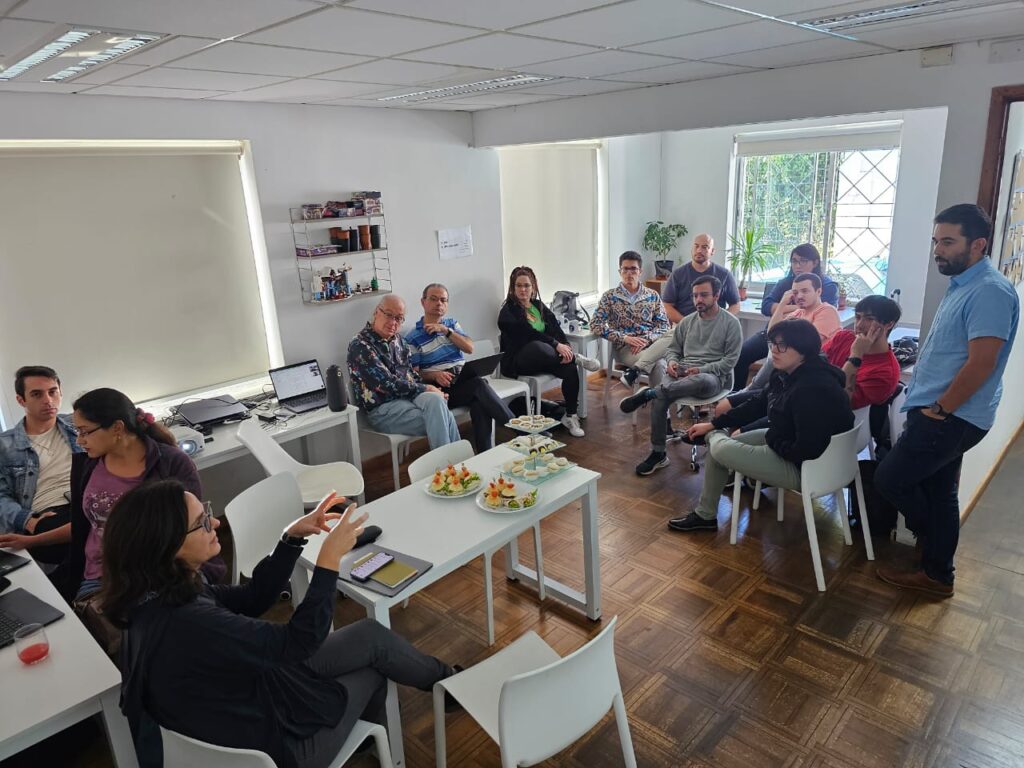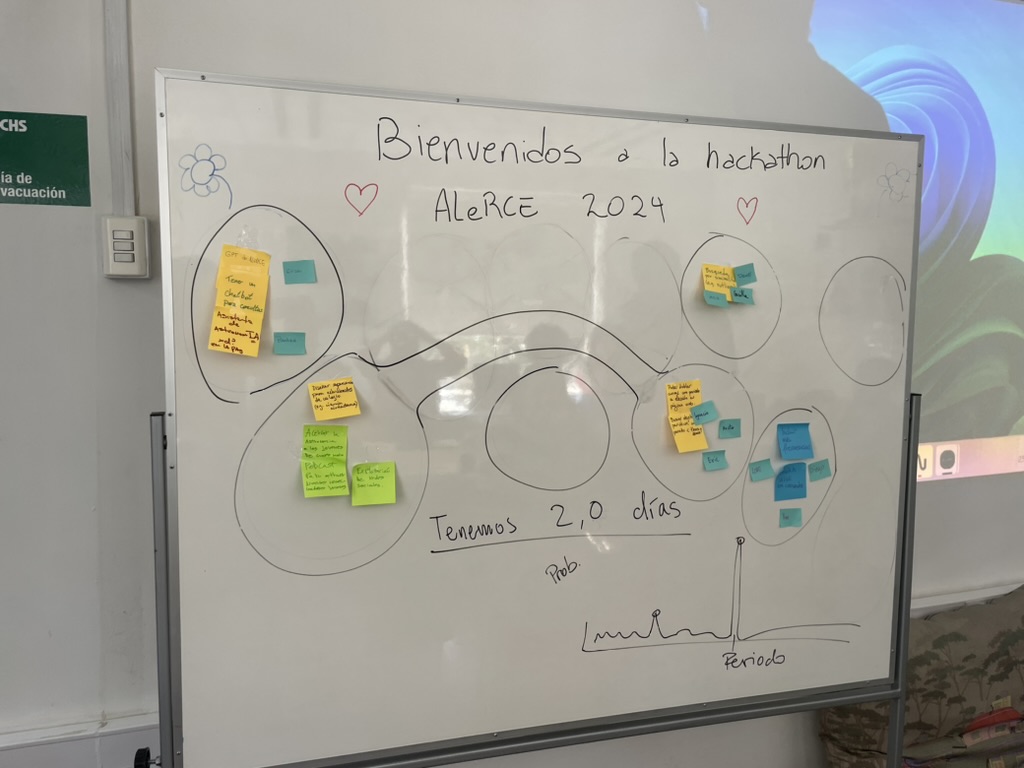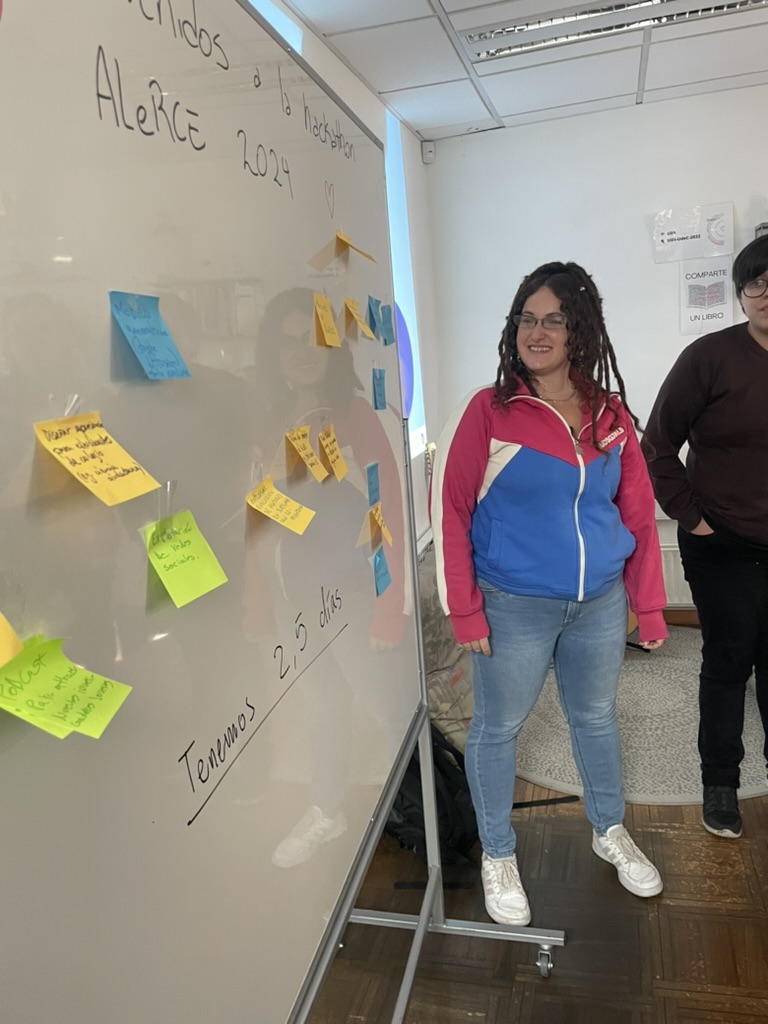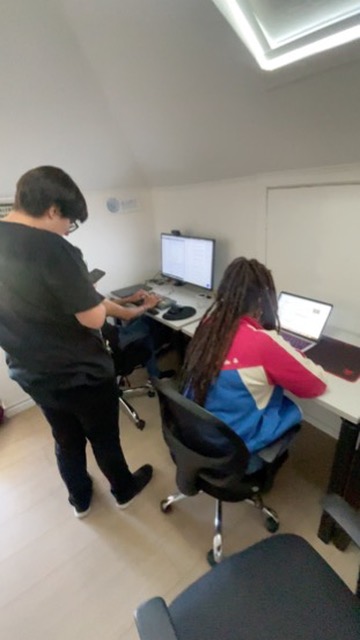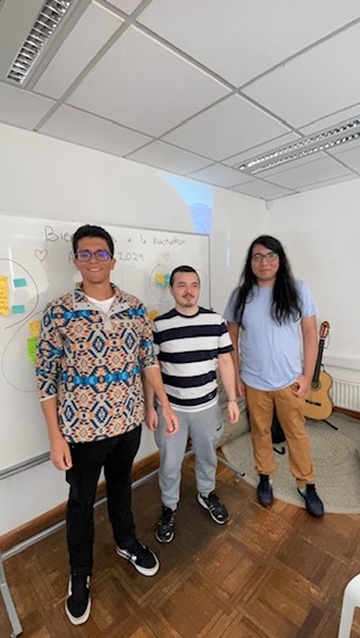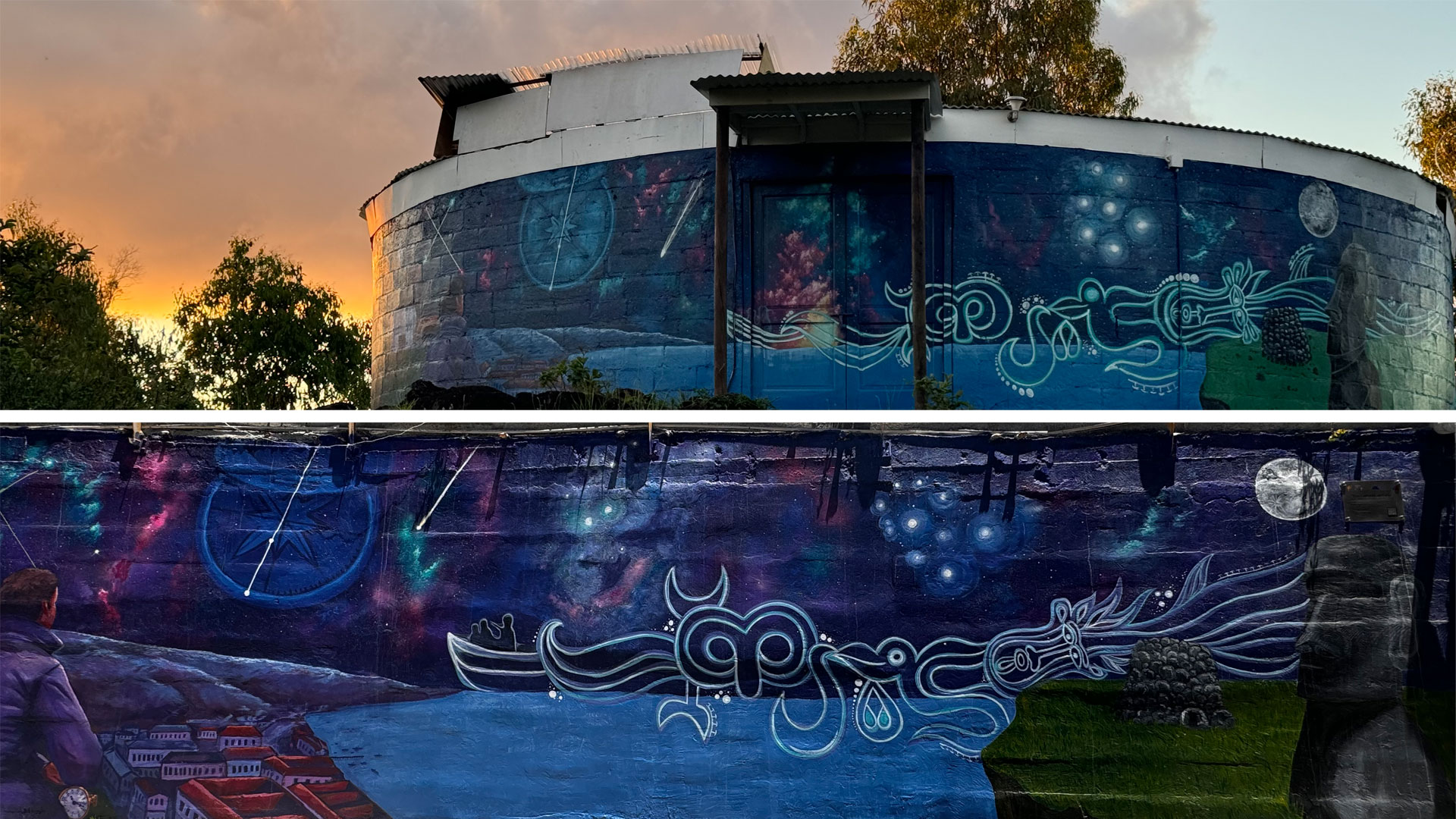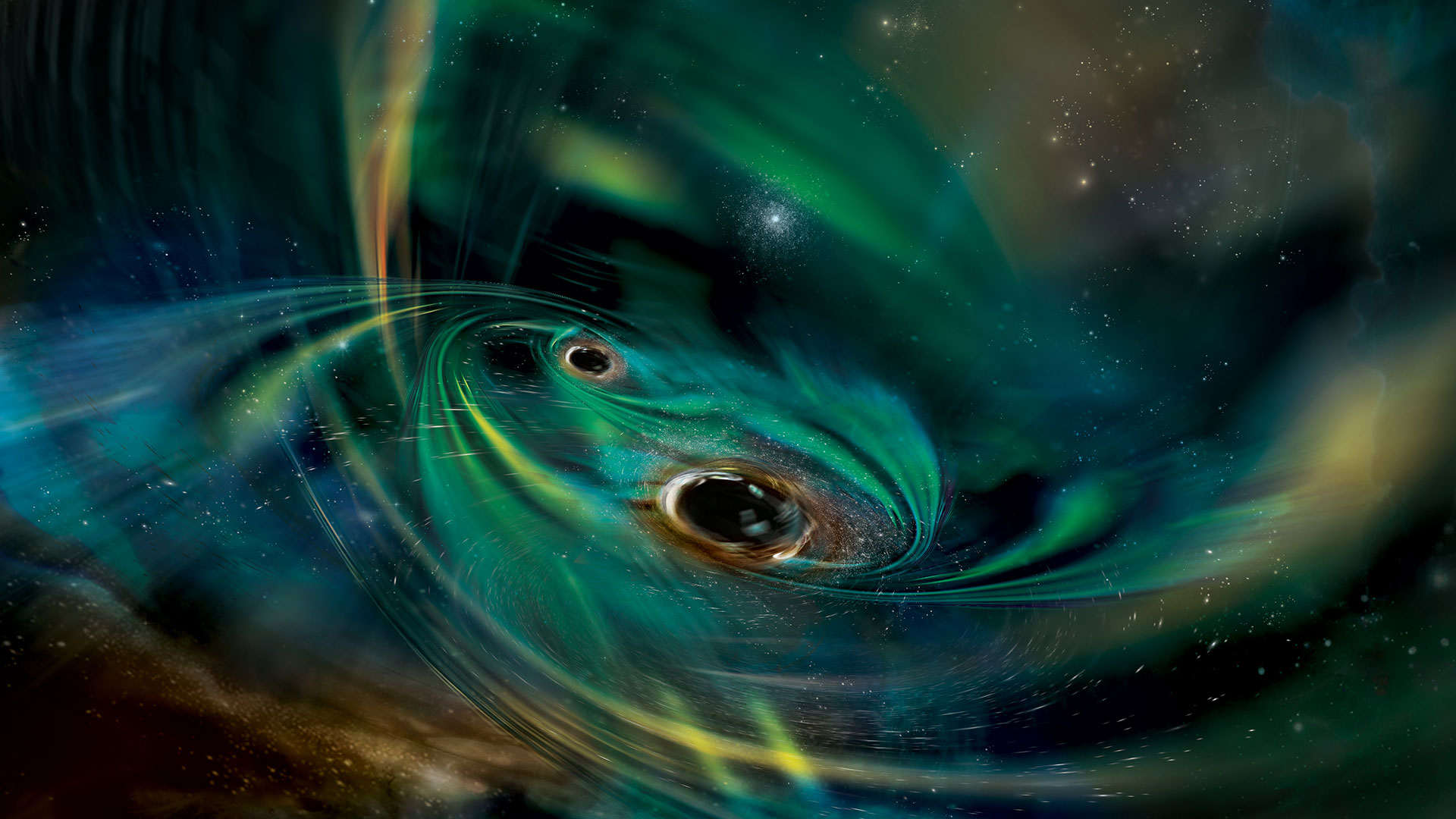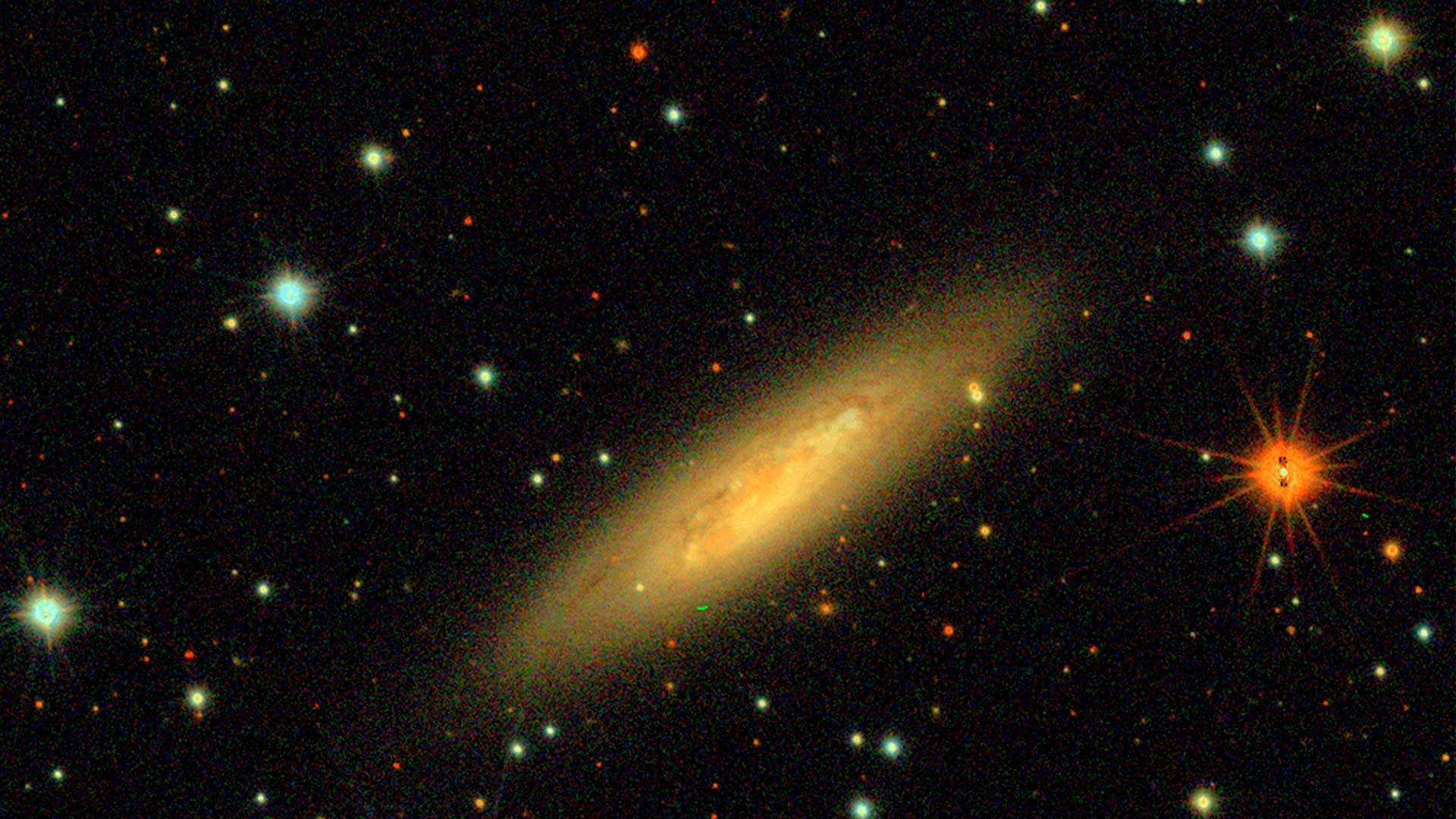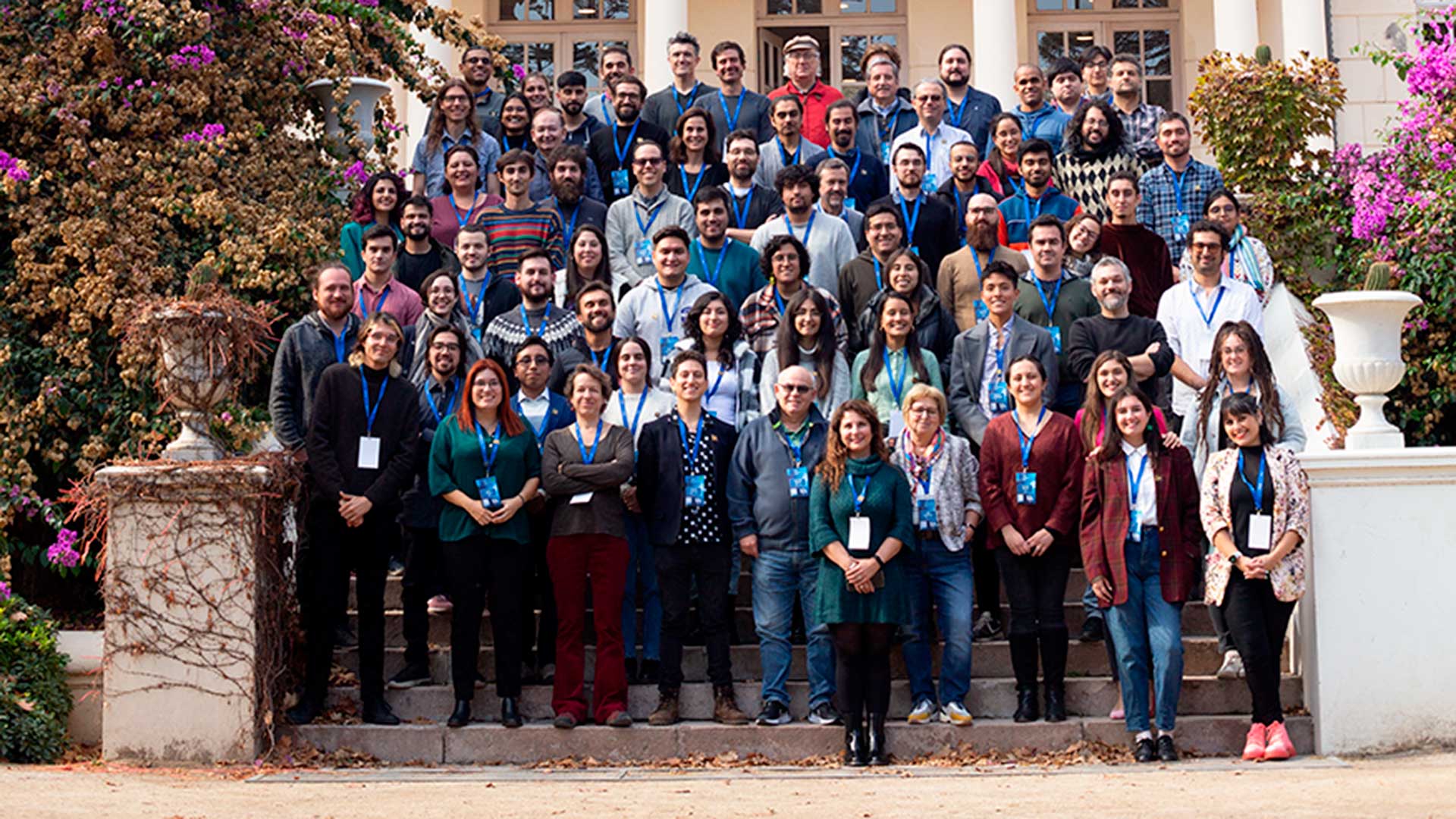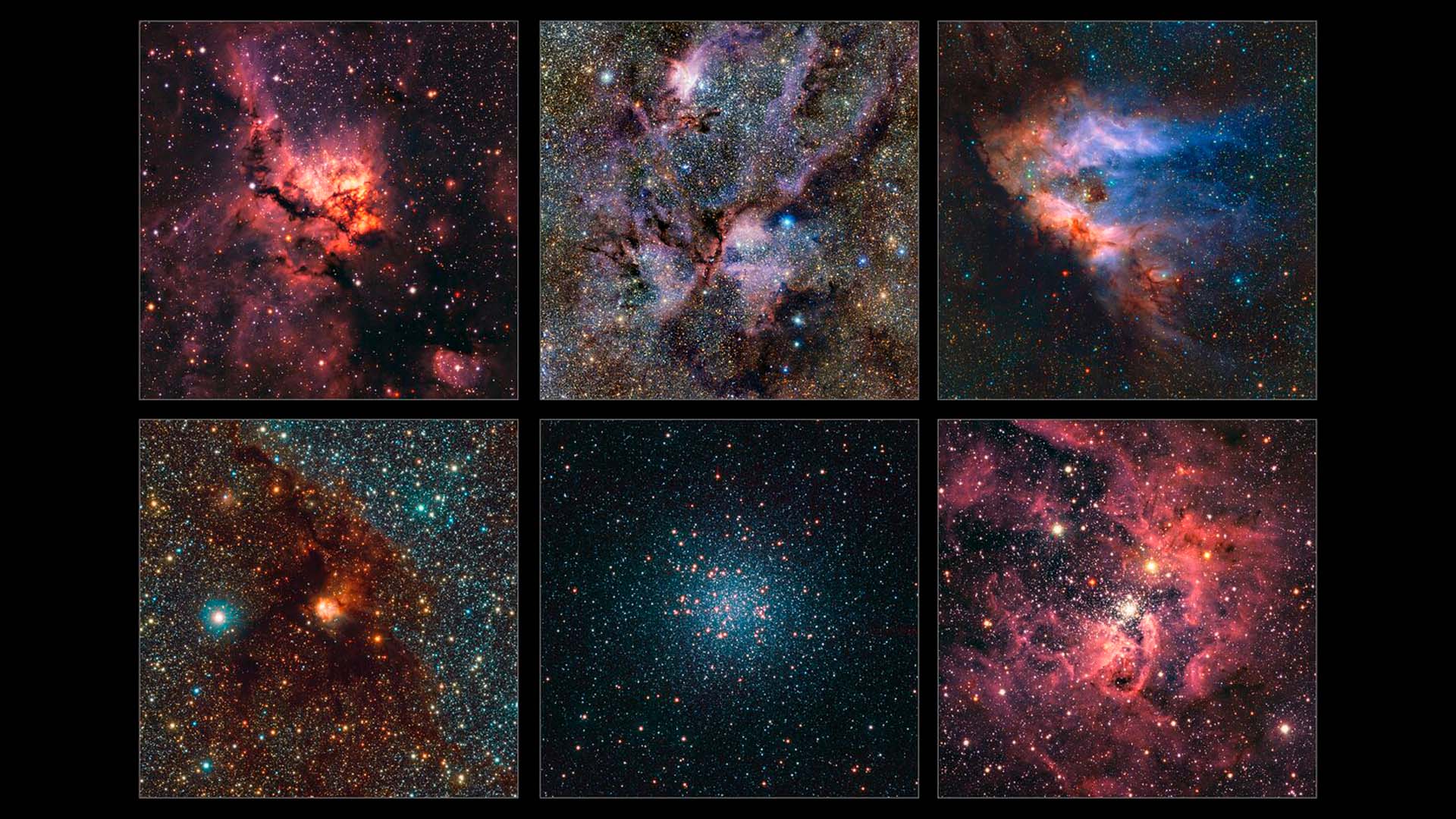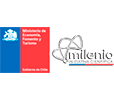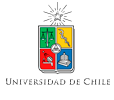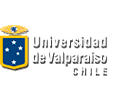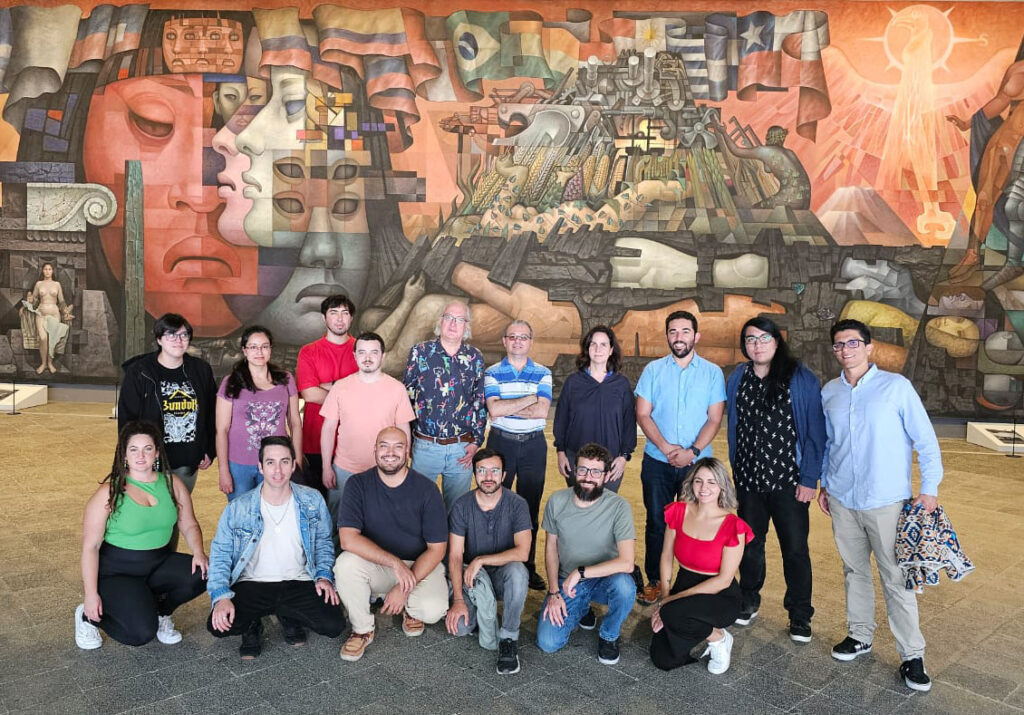
The Universidad de Concepción Data Science Unit hosted the Automatic Learning for the Rapid Classification of Events team (ALeRCE) to carry out a hackathon and a workshop in order to develop new projects, outside of the day-to-day astronomy life.
With the aim to boost innovation and creativity, beyond its daily tasks, the members of the ALeRCE broker gathered at UDS UdeC to carry out vast projects -original and not included in the short-term agenda- in just one week.
At these meetings, having around Software - Machine Learning engineers and astronomers, were selected four projects to work through, split in four groups.
The ALeRCE members are allocated across different cities of Chile: Santiago, Concepción, and Valparaíso. To Guillermo Cabrera, deputy director and member of the ALeRCE's science committee, "it is crucial that, from time to time, we gather to know more about each other and to create a stronger bond."
"We engaged in solving a specific problem that had not been a priority in the past, but in just one week produced four new products. during the year, we move forward significantly faster than usual since we were all focused in a goal in particular. This is so relevant for the project because we can obtain prototypes of products that support the system," the, also, MAS researcher.
The topics to be developed were: a tool to identify astronomical objects in different catalogues; another interactive tool to select the cycle of a star; and identifying similar objects based on multiple features, allowing to detect what objects are sharing similarities and how closed are from one another.
The latter project consisted of developing a GPT-based system, which receives information from all the available ALeRCE's services. With this, the system will provide orientations and suggestions about how to deal with certain problems, guiding the user towards the proper tools and resources.
«Son ideas que ya habíamos discutido, pero debido a la falta de tiempo, tanto por la naturaleza de ALeRCE como por nuestras responsabilidades individuales, no las llevábamos a cabo. Todas se incluirán en algún momento en el proyecto principal”, comentó el co-director y miembro comité estratégico ALeRCE, Francisco Förster.
“Esta semana nos permitirá evaluar el trabajo que implica cada uno de ellos. Uno se da cuenta de que es más fácil de lo que se pensaba; solo era cuestión de dedicarse», destacó.
Watching Out the Sky
As a pioneering project in Chile, ALeRCE is a virtual astronomical agent, which main object aims to classifying astronomical objects variable in time, reported by large telescopes mapping the sky every night.
The operations began in 2019. It was born as a collaboration between the Millennium Institute of Astrophysics (MAS) and the Center for Mathematical Modeling (CMM) of Universidad de Chile, to then join the Data Observatory Foundation (DO), and Universidad de Concepción (UdeC.)
Also, ALeRCE joined the NASA-funded telescope network ATLAS, which aims at early detecting and alerting about potentially hazardous asteroids for planet Earth. One out of four network telescopes, ATLAS-4, was installed in Chile due to a collaboration between MAS and the University of Hawai'i.
To do so, it processes ATLAS data and combines them in real-time with the Zwicky Transient Facility (ZTF) observations in California, USA., becoming into the first broker mixing large data fluxes in a global12 multi-telescope system.
